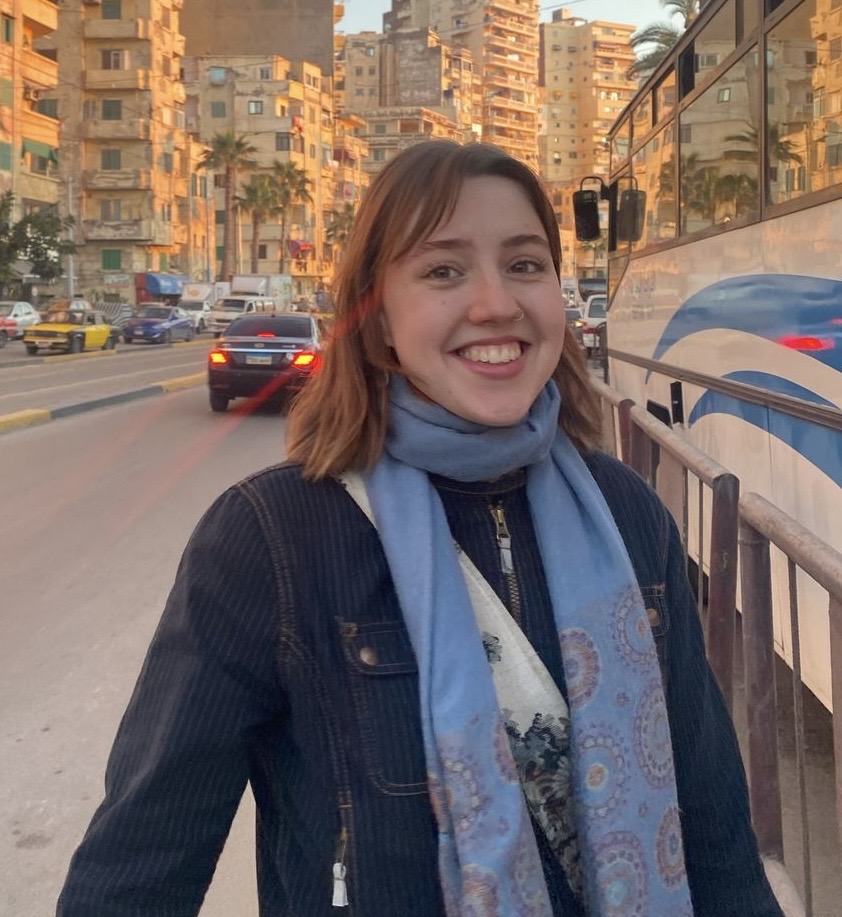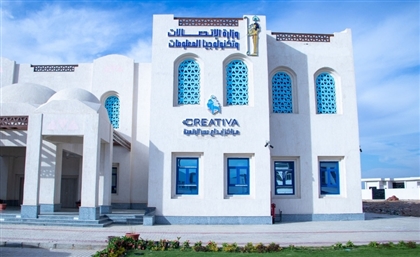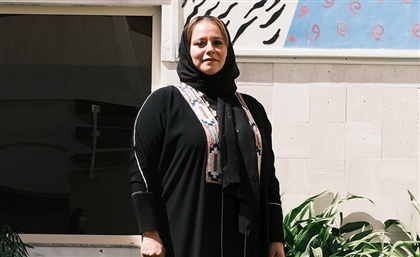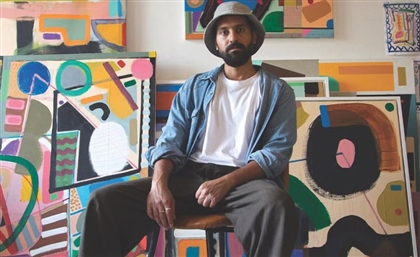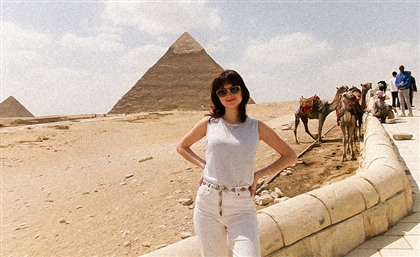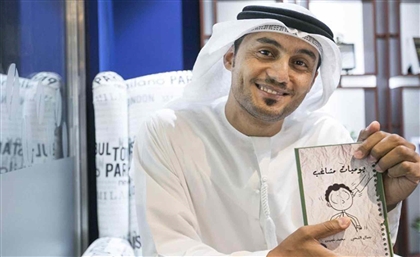Mayada Badr is Mapping a Past & a Future For Saudi Culinary Heritage
Cordon Bleu graduate, founder of Pink Camel and now CEO of the Culinary Arts Commission, Mayada Badr is answering a question that has rarely been asked before - how to enact a culinary renaissance?
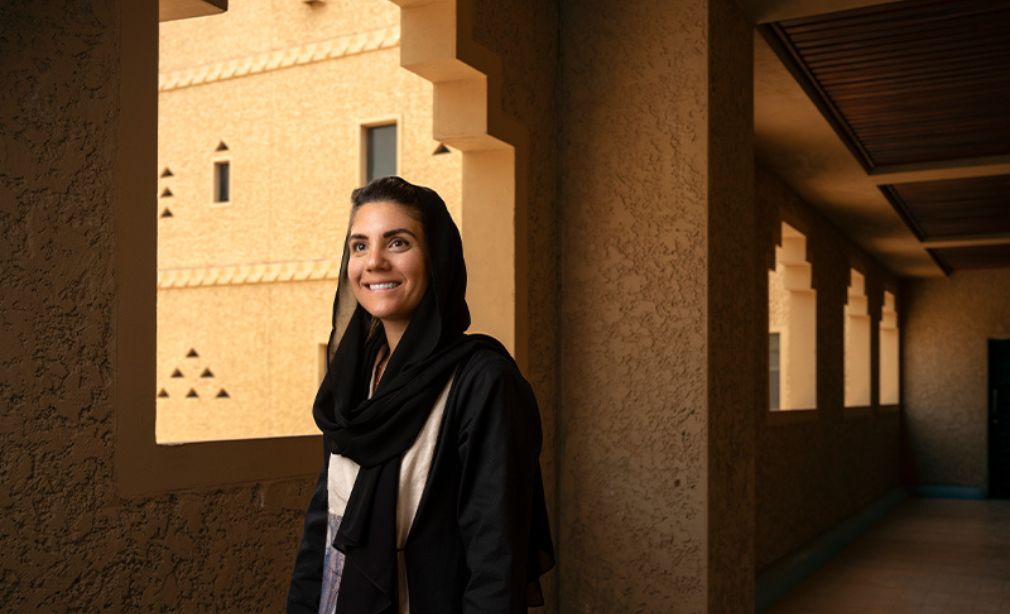
Originally Published on April 17th, 2025
When Saudi Arabia’s Ministry of Culture set about creating 11 new cultural commissions, they imagined something unprecedented: a body dedicated to preserving, codifying, and celebrating the nation’s culinary heritage. There was no blueprint to follow. No global precedent. It required a leader with a rare combination of imagination, resilience, and deep cultural grounding. It required someone like Mayada Badr.
-d6229177-02fe-4bd0-aef9-96a7a848afda.jpg) Badr’s path was anything but traditional. A Parsons School of Design graduate with a passion for culinary creation, she spent her lunch breaks experimenting in the kitchen before formally training at Le Cordon Bleu. After interning in French restaurants, Badr returned home to Saudi Arabia, determined to give back. There, she founded Pink Camel, a fusion patisserie blending classic French technique with local flavours. Think kunafa macarons and Um Ali croissants.
Badr’s path was anything but traditional. A Parsons School of Design graduate with a passion for culinary creation, she spent her lunch breaks experimenting in the kitchen before formally training at Le Cordon Bleu. After interning in French restaurants, Badr returned home to Saudi Arabia, determined to give back. There, she founded Pink Camel, a fusion patisserie blending classic French technique with local flavours. Think kunafa macarons and Um Ali croissants.
As her business grew, so did her influence, leading to government consulting work abroad. Then one day, the Ministry of Culture called - not to simply consult, but to lead.
“I wanted to make sure this was for the industry,” Badr tells SceneNowSaudi. “I was just happy to talk, to be able to suggest how the culinary industry could be fixed.”
-f99878b0-7df5-49f1-a96b-ac72650aca41.jpg) When Badr reflects on her greatest milestone, she points not to a singular project, but to the Commission itself. Culinary arts, she notes, are an endangered industry. Across the globe, traditional foodways are eroding. In Saudi Arabia, the Culinary Arts Commission is racing to document, preserve, and revitalise them before they are lost.
When Badr reflects on her greatest milestone, she points not to a singular project, but to the Commission itself. Culinary arts, she notes, are an endangered industry. Across the globe, traditional foodways are eroding. In Saudi Arabia, the Culinary Arts Commission is racing to document, preserve, and revitalise them before they are lost.
“Preservation is a major pillar of our strategy,” Badr shares. “We wanted to know what Saudi cuisine is, what our heritage is. We were uncovering our culture.”
Under Badr’s leadership, the Commission spent two and a half years conducting a monumental survey. Across all 13 regions of the Kingdom, researchers visited homes, learnt from the oldest families, listened to oral histories, consulted poetic sources, historic texts, and travel writings. The result? A living archive of 1,300 recipes and heritage ingredients, meticulously mapped and recorded.
-08c5cb56-eb90-43cb-9828-417f95ed2634.jpg) The work did not stop at documentation. In collaboration with UNESCO’s intangible heritage initiatives, Badr spearheaded a Food Atlas project - a platform enabling nations to catalog and preserve their culinary traditions. Saudi cuisine, long overlooked internationally, is now not only entering the global stage, but it’s supporting a global movement.
The work did not stop at documentation. In collaboration with UNESCO’s intangible heritage initiatives, Badr spearheaded a Food Atlas project - a platform enabling nations to catalog and preserve their culinary traditions. Saudi cuisine, long overlooked internationally, is now not only entering the global stage, but it’s supporting a global movement.
“Food truly has no borders,” Badr asserts.
Saudi chefs now participate annually in festivals like Taste of London and Taste of Paris, introducing global audiences to the complexity and richness of Saudi flavours. At the same time, domestic initiatives like Irth - a restaurant-shop-training-centre hybrid staffed entirely by Saudis - and the Saudi Feast Food Festival, which offers visitors an all-day, one-stop taste of all thirteen regions, ensure that culinary traditions continue to thrive at home.
-cba35c6a-2f2a-4086-9e9d-2f7170a03ea4.jpg) Through documentary films, television series, open-access recipe archives, and dynamic food events, Badr’s Commission is leading a content-driven cultural renaissance - one that sees cuisine as a critical avenue for national storytelling in an international narrative.
Through documentary films, television series, open-access recipe archives, and dynamic food events, Badr’s Commission is leading a content-driven cultural renaissance - one that sees cuisine as a critical avenue for national storytelling in an international narrative.
And yet, even Badr has to admit that Saudi’s greatest asset to global gastronomy isn’t their dishes - and no, it’s not their dates either - it’s people.
“You don’t train Saudis to smile, to be hospitable. We take our kindness for granted, but it is rare.”
In every project she undertakes, the focus remains clear: give back to the culture that shaped her. This pride shines through every initiative, and it’s starting to catch on. Saudis at home and afar are beginning to rediscover their culinary heritage now that it has been articulated. The private sector is picking it up - now it’s time perhaps for Mayada Badr to step back and admire the view.
-e09f4108-03f2-4e47-b4b1-31e8c05944b6.jpg) To Mayada Badr, however, that future looks like three words:
To Mayada Badr, however, that future looks like three words:
"Innovation. Discovery. Sustainability."
With a multi-hyphenated background which bridges disciplines, cultures, and borders, Mayada Badr embodies the versatility and passion needed to navigate uncharted territory. Under her leadership, Saudi cuisine is not just being preserved; it is being reimagined as a living, evolving force.
- Previous Article Hands on at Ormet Fahmy
- Next Article Hamid El-Shaeri: The Man Who Defied Tradition From Benghazi to Cairo
Trending This Week
-
Dec 27, 2025







